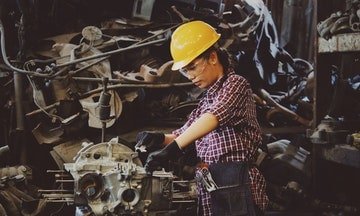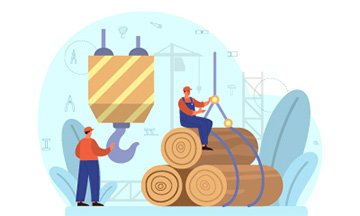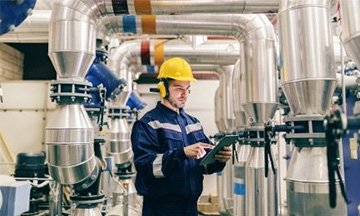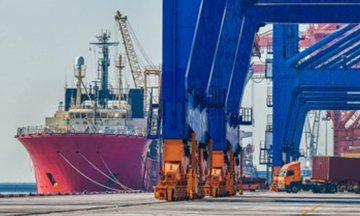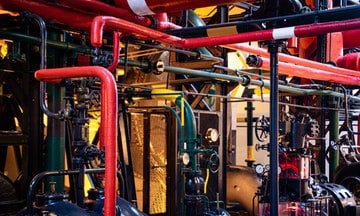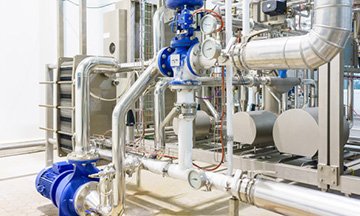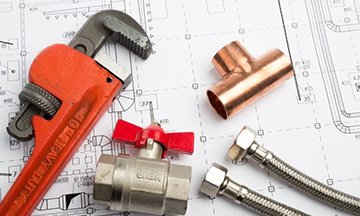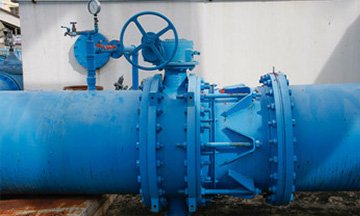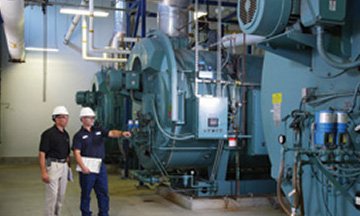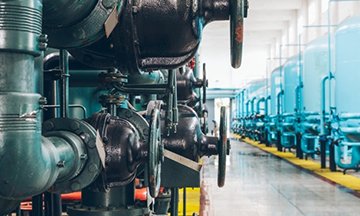Mechanical Equipment Design, Testing, Installation, Inspection and Maintenance
Course Overview
Mechanical equipment is extremely important, and proper maintenance of these plays a critical role in determining organisational success. If not maintained well, they can cause serious injuries, including open wounds, amputations and fractures. Pressure vessels, pumps, fans, blowers and compressors are called mechanical equipment.
A pressure vessel handles fluids at a pressure not equal to the ambient temperature. A pump moves fluids through mechanical action. Furthermore, fans, blowers and compressors involve movement of gas through different mechanisms. Fans move huge amounts of gas with a low increase in pressure, blowers move gases with a moderate increase in pressure and compressors raise gases to a higher level of pressure.
This Zoe training course will empower you with a detailed understanding of mechanical equipment. Through this course, you will gain adequate knowledge and experience to work with any or all mechanical equipment when required in any function or role.
Thus, the knowledge and information gained through this course will make you capable of handling any role or responsibility related to mechanical equipment. This will invite greater and better opportunities for career growth and progression.
Course Objectives
The main objective of this Mechanical Equipment Design, Testing, Installation, Inspection and Maintenance training program is to empower professionals with—
- detailed understanding and knowledge of mechanical equipment
- adequate information, confidence and experience to handle any issue or problem related to mechanical equipment during operations
- the ability to upskill to successfully oversee end-to-end seamless operations at plants
- greater understanding of inspection schedules and activities and maintenance requirements to be able to contribute to better and more efficient mechanical equipment and lesser repair costs
- the required experience and knowledge to train other professionals on best practices of handling mechanical equipment, to ensure that the life of equipment or safety of employees is not compromised
- the skill and experience to foresee a challenge about the safety of mechanical equipment and take timely action to avoid hazards and organisational losses
- the required understanding and knowledge of international standards for safety and operational adherence
- the understanding and awareness to choose the right equipment design as per the desired operations, thereby contributing to better operations and organisational growth
- the overall skill set and capabilities to work in dynamic roles requiring handling or management of mechanical equipment of any type
Training Methodology
Training courses at Zoe Talent Solutions are designed with scope for customisation, wherever necessary. Before each training, the content is closely reviewed and changes are made, if necessary, to suit the relevant audience. Lectures are conducted by trained, experienced professionals from relevant domains.
To encourage trainee participation, the trainer assigns group projects and tasks. Role-plays and case study discussions encourage trainees to interact with each other.
The above unique, effective approach to training has been invented by Zoe Talent Solutions and is called the Do–Review–Learn–Apply Model.
Organisational Benefits
With professionals undertaking this Mechanical Equipment Design, Testing, Installation, Inspection and Maintenance training course, their organisations will derive the following benefits:
- Seamless operations involving different mechanical equipment by experienced, trained professionals
- Regular equipment inspection and maintenance to aid longevity and prevent wear and tear
- Reduced purchase and repair costs because of better-maintained equipment
- Effective prediction of challenges and risks before they occur, with timely action to prevent business losses
- Increased operational efficiency because of better machines working at optimal levels
- Organisational growth and development because of reduced costs, greater operational efficiency, lower risks and increased credibility
- Adherence to expected standards and benchmarks of safety and operational compliance
- Frequent and continuous training of personnel working with these machines to ensure that they take care of the machines and do not compromise on safety
- Appropriate selection of equipment as per the desired operations
Personal Benefits
Professionals enrolling for this Mechanical Equipment Design, Testing, Installation, Inspection and Maintenance training course will benefit as follows:
- Comprehensive understanding and knowledge of mechanical equipment
- Greater knowledge and information to choose the correct equipment type and design as per the intended operations
- Enhanced capabilities and experience to handle end-to-end operations involving the use of any type of mechanical equipment
- Increased strategic skills to thoroughly inspect machines to ensure optimal working conditions and predict challenges, thereby addressing risks and preventing organisational loss
- Increased potential to contribute to organisational growth through better machine maintenance, reduced costs, increased safety, etc.
- Greater confidence and knowledge to train other professionals on best practices when working with mechanical equipment
- Increased awareness and understanding of expected compliance standards to ensure compliance
- Increased ability and experience to promote machine longevity, thereby ensuring seamless, successful operations
- Enhanced capabilities and knowledge to undertake any higher responsibility involving mechanical equipment, thereby fostering quicker career progression
Who Should Attend?
- Engineers and other operators working directly with mechanical equipment
- Managers responsible for overseeing end-to-end operations involving mechanical equipment
- Senior management, who is responsible for making critical decisions about machines, operations, etc.
- Compliance and safety officers responsible for quality adherence at required safety benchmarks
- Vendors and suppliers of mechanical equipment
- Any other professional interested in knowing more about mechanical equipment
Course Outline
The Mechanical Equipment Design, Testing, Installation, Inspection and Maintenance course covers the following areas important to understanding mechanical equipment:
Module 1 – Types of Pressure Vessels
- Single-wall
- Multi-wall
- Cladded
- Over-lay
- High thick
Module 2 – Components of Pressure Vessels
- Shell
- Dished end
- Nozzle
- Manways
- Lugs
- Support
Module 3 – Design Considerations for Pressure Vessels
- Codes
- Requirement understanding
- Opening mechanism
Module 4 – Pressure Vessel Operational Requirements and Processes
- Operating pressure
- Fluid conditions
- External loads
- Transient conditions
- Functional requirements
Module 5 – Safety Tips for Pressure Vessel Operation
- Maximise awareness
- Follow safety procedures
- Install protective devices
- Replace when necessary
- Install safety equipment
Module 6 – Pressure Vessel Inspection/Maintenance
- Shut-down inspection
- Non-destructive examination
- Metallurgical examination
- Analysis and evaluation
- Repair and modification
- Replacement
Module 7 – Pump Design Considerations
- Rated pressure
- Rated speed
- Design displacement
- Flow versus pressure curve
- Temperature rating
- Case drain pressure
- Inlet and outlet line size
- Case drain line size
- Recommended inlet pressure
- Number of pump pistons
- Power requirements
- Maximum fluid viscosity
- Seals
- Filtration requirements
- Weight
- Shaft type
- Rotation direction
- Mounting
- Relief valve
Module 8 – Mechanical Pump Types and their Operation
- Positive displacement
- Impulse
- Velocity
- Gravity
- Steam
- Valve-less
Module 9 – Parameters Regularly Monitored for Centrifugal Pump Maintenance
- Suction pressure
- Discharge pressure
- Flow
- Pump speed
- Pump efficiency
- Power
Module 10 – Fan/Blower Components and their Operation
- Impeller
- Blade
- Shroud
- Hub
- Housing
- Inlet
- Outlet
- Guide vanes
Module 11 – Control of Fan/Blower Airflow
- Speed change by pulley change
- Dampers
- Inlet guide vanes
- Variable pitch fans
- Variable speed drives
- Multiple speed drive
- Disc throttle
- Operating fans in parallel
- Operating fans in series
Module 12 – Air Compressor Maintenance
- Check for oil and air leaks
- Check pump oil level
- Change pump oil
- Check air filter element
- Inspect belts
Module 13 – Fan/Blower Maintenance
- Brake horsepower
- Fan capacity
- Fan rating
- Outlet velocity
- Static efficiency
- Static pressure
- Tip speed
- Total pressure
